Discover The Vietnamese with Kenneth Nguyen
The Vietnamese with Kenneth Nguyen

 The Vietnamese with Kenneth Nguyen
The Vietnamese with Kenneth Nguyen
Author: thevietnamesepodcast
Subscribed: 40Played: 1,607Subscribe
Share
© Copyright 2021 All rights reserved.
Description
Being a part of the Vietnamese culture of over 100 million people comes with plenty of history, privilege, honor, and not to mention painful challenges. Join Kenneth Nguyen as he spotlights Vietnamese experience from around the world! Each podcast episode explores the creative process of individuals shaping the diversity of what it means to be Vietnamese--as a local, born and raised, or as a third culture kid. Gain insight on the divisions that separate us politically and culturally. This podcast can take multiple directions, but what it will aim to do is show Vietnamese from a transpacific lens, in all its facets and complexities. When you strip away the diaspora, we are #VietnameseFirst.
459 Episodes
Reverse
In this episode, Kenneth sits down with Czech-Vietnamese filmmaker Duzan Duong to explore the creative and personal journey behind his debut feature film, Summer School 2001 — a project that took 8 years to make and 6 years to write.We discuss what it takes to navigate European film financing structures, how he approached casting and directing actors, and where the emotional core of the film came from. Duzan opens up about the personal and cultural themes that shaped the story, and gives us a glimpse into what’s next on his creative horizon.--------------------------------------------------------------------------------------------------Many of you still have the chance to record and preserve the legacies of your own families. I’ve sat with families now for interview sessions to record the rich histories of parents and explore the lives of the generations that preceded them. Don’t let your family stories go untold! Take a moment to reach out and together we will bring out your family’s story on a recorded journey. - Kenneth NguyenVisit vietnamstorybank.com today for more information!Support this podcast at — https://redcircle.com/the-vietnamese-with-kenneth-nguyen/donationsAdvertising Inquiries: https://redcircle.com/brandsPrivacy & Opt-Out: https://redcircle.com/privacy
In this episode, Kenneth sits down with Eric Nong, the Artistic Director of the Viet Film Fest, to explore this year’s film selections and the evolving landscape of Vietnamese cinema. From the exciting rise of animated Vietnamese films to the behind-the-scenes process of how films are chosen, the conversation also touches on how AI might shape the future of curation and storytelling in film. Eric also discusses what kinds of films are selected this year. -------------------------------------------------------------------------------------------------Many of you still have the chance to record and preserve the legacies of your own families. I’ve sat with families now for interview sessions to record the rich histories of parents and explore the lives of the generations that preceded them. Don’t let your family stories go untold! Take a moment to reach out and together we will bring out your family’s story on a recorded journey. - Kenneth NguyenVisit vietnamstorybank.com today for more information!Support this podcast at — https://redcircle.com/the-vietnamese-with-kenneth-nguyen/donationsAdvertising Inquiries: https://redcircle.com/brandsPrivacy & Opt-Out: https://redcircle.com/privacy
In this episode of the Vietnamese podcast, we’re joined by Karen Tran Wood, a seasoned entertainment marketing and publicity executive with over a decade of experience leading award-winning campaigns across film, television, and lifestyle brands.As Head of Entertainment Marketing & Publicity at IW Group, Karen oversees a division dedicated to crafting integrated, culturally resonant campaigns that connect with today’s diverse audiences. Her client portfolio includes major names like Amazon Prime Video, Hulu, Lionsgate, Universal Pictures, The Walt Disney Company, and Warner Bros. She has led standout campaigns for Barbie, Avatar: The Way of Water, Shōgun, The Cleaning Lady, Moana 2, and Mission: Impossible – The Final Reckoning.In our conversation, Karen shares what it takes to build inclusive, high-impact marketing strategies in today’s Hollywood—and why multicultural audiences, especially Vietnamese Americans, deserve greater attention from studios and brands. We also dive into the global future of Vietnamese film and music, how it compares to industries like K-pop, and her thoughts on how AI is reshaping the entertainment landscape and the future of creativity.--------------------------------------------------------------------------------------------------Many of you still have the chance to record and preserve the legacies of your own families. I’ve sat with families now for interview sessions to record the rich histories of parents and explore the lives of the generations that preceded them. Don’t let your family stories go untold! Take a moment to reach out and together we will bring out your family’s story on a recorded journey. - Kenneth NguyenVisit vietnamstorybank.com today for more information!Support this podcast at — https://redcircle.com/the-vietnamese-with-kenneth-nguyen/donationsAdvertising Inquiries: https://redcircle.com/brandsPrivacy & Opt-Out: https://redcircle.com/privacy
In this episode of Viet Origins, Kenneth Nguyen joins Professor John Phan of Columbia University to examine the creation and evolution of chữ Nôm, Vietnam’s early vernacular writing system. Born out of a need to express Vietnamese thought in written form, chữ Nôm emerged as a linguistic innovation that pushed against classical norms. Just as hip hop gave voice to the unheard, chữ Nôm became a medium for cultural expression outside the dominant literary establishment. Is it possible that chữ Nôm was Vietnam’s first form of lyrical resistance? Tune in as we draw connections between past and present, language and liberation.--------------------------------------------------------------------------------------------------John D. Phan is an Associate Professor of Vietnamese Humanities at Columbia University, based in the Department of East Asian Languages & Cultures and the Weatherhead East Asian Institute. He focuses on the linguistic history of Vietnam and its cultural context.His first book, The Lost Tongues of the Red River: Annamese Middle Chinese & the Origins of the Vietnamese Language, published in April 2025 by Harvard University Press, posits the existence of a regional dialect of Middle Chinese once spoken in northern Vietnam (the Red River Delta) and explores how this dialect influenced the emergence of VietnamesePhan completed his M.A. at Columbia University (on Ming‑Qing vernacular fiction, 2005) and earned his Ph.D. from Cornell (on Sino‑Vietnamese language contact, 2012). His scholarship examines the evolution of writing systems, vernacular literary forms (like chữ Nôm), and the social-political implications of multilingualism in East Asia--------------------------------------------------------------------------------------------------Many of you still have the chance to record and preserve the legacies of your own families. I’ve sat with families now for interview sessions to record the rich histories of parents and explore the lives of the generations that preceded them. Don’t let your family stories go untold! Take a moment to reach out and together we will bring out your family’s story on a recorded journey. - Kenneth NguyenVisit vietnamstorybank.com today for more information.Support this podcast at — https://redcircle.com/the-vietnamese-with-kenneth-nguyen/donationsAdvertising Inquiries: https://redcircle.com/brandsPrivacy & Opt-Out: https://redcircle.com/privacy
If you joined us last time for the episode "Did Chinese Writing "Civilize" Vietnam?" we are here to answer your questions on this AMA based on the questions we got from the podcast sub series so far. We had quite a conversation with Professor John Phan from Columbia University about the evolution of the Vietnamese language. We dove deep into its fascinating history, from its roots and the long influence of Chinese culture, to the creation of the modern writing system and its unique place in Southeast Asian linguistic history.We're doing another follow up round of Ask Me Anything (AMA) episode! we’ve gathered some of the most thoughtful questions from our last episode from the listeners, and I’m excited to dive deeper into the topics we touched on in the last episode, clarify some points, and explore a few new ideas that came up after the show.-------------------------------------------------------------------------------------------------John D. Phan is an Associate Professor of Vietnamese Humanities at Columbia University, based in the Department of East Asian Languages & Cultures and the Weatherhead East Asian Institute. He focuses on the linguistic history of Vietnam and its cultural context.His first book, The Lost Tongues of the Red River: Annamese Middle Chinese & the Origins of the Vietnamese Language, published in April 2025 by Harvard University Press, posits the existence of a regional dialect of Middle Chinese once spoken in northern Vietnam (the Red River Delta) and explores how this dialect influenced the emergence of VietnamesePhan completed his M.A. at Columbia University (on Ming‑Qing vernacular fiction, 2005) and earned his Ph.D. from Cornell (on Sino‑Vietnamese language contact, 2012). His scholarship examines the evolution of writing systems, vernacular literary forms (like chữ Nôm), and the social-political implications of multilingualism in East Asia--------------------------------------------------------------------------------------------------Many of you still have the chance to record and preserve the legacies of your own families. I’ve sat with families now for interview sessions to record the rich histories of parents and explore the lives of the generations that preceded them. Don’t let your family stories go untold! Take a moment to reach out and together we will bring out your family’s story on a recorded journey. - Kenneth NguyenVisit vietnamstorybank.com today for more information.Support this podcast at — https://redcircle.com/the-vietnamese-with-kenneth-nguyen/donationsAdvertising Inquiries: https://redcircle.com/brandsPrivacy & Opt-Out: https://redcircle.com/privacy
In this episode of Viet History Makers, we sit with Professor Kevin Pham to explore the remarkable life and legacy of Trần Đức Thảo, who we can describe as Vietnam’s earliest intellectual export. A philosopher trained in France, Thảo studied alongside some of the 20th century’s most influential European thinkers, including Jean-Paul Sartre and Maurice Merleau-Ponty. Yet his journey was not one of mere academic exchange—he carried philosophy across continents, weaving together European phenomenology with Marxist theory, and later returning to Vietnam to shape debates on culture, ideology, and national identity.We discuss his rise from colonial Vietnam to the Parisian intellectual scene, his groundbreaking work in philosophy of consciousness and language, and the difficult political turns his career took as he navigated the complexities of intellectual life under colonial rule, revolution, and socialism. Along the way, we ask: what does it mean for Vietnam to have produced a global thinker in the midst of colonial struggle? And how should we understand the contributions and contradictions of a man who bridged East and West, philosophy and politics?This episode sheds light on a figure too often overlooked, placing Trần Đức Thảo back into the story of global intellectual history.--------------------------------------------------------------------------------------------------Kevin D. Pham is an Assistant Professor of Political Science at the University of Amsterdam. His research introduces Vietnamese political thought to the academic field of political theory, showing how Vietnamese thinkers challenge and enhance conventional Western understandings of important political concepts.He co-hosts Nam Phong Dialogues, a podcast in which he and Yen Vu have casual chats about Vietnamese history and being Vietnamese American. He is the author of The Architects of Dignity: Vietnamese Visions of Decolonization (Oxford University Press, 2024).Kevindoanpham.com--------------------------------------------------------------------------------------------------Many of you still have the chance to record and preserve the legacies of your own families. I’ve sat with families now for interview sessions to record the rich histories of parents and explore the lives of the generations that preceded them. Don’t let your family stories go untold! Take a moment to reach out and together we will bring out your family’s story on a recorded journey. - Kenneth NguyenVisit vietnamstorybank.com today for more information.Support this podcast at — https://redcircle.com/the-vietnamese-with-kenneth-nguyen/donationsAdvertising Inquiries: https://redcircle.com/brandsPrivacy & Opt-Out: https://redcircle.com/privacy
We sit down with siblings Han and Holden Nguyen, finalists from The Amazing Race Season 37. They open up about their journey to the show, including the audition process that first brought them into the spotlight.We dive into their unique sibling dynamic—how competing side by side strengthened their relationship, but also tested it under the pressures of racing around the world. Han and Holden also reflect on just how close they came to winning it all, sharing the emotional highs and near-misses along the way.Finally, they reveal the deeper reasons behind why they decided to join The Amazing Race, offering insights into what motivated them and what the experience ultimately meant for their family and their future.Instagram: @teamasianswag@hanbnguyen@hole.den- - - - - - -- - - - - - - - -Many of you still have the chance to record and preserve the legacies of your own families. I’ve just begun to sit with families now for interview sessions to record the rich histories of parents and explore the lives of the generations that preceded them. Don’t let your family stories go untold! Take a moment to reach out and together we will bring out your family’s story on a recorded journey. - Kenneth NguyenVisit vietnamstorybank.com today for more information.Support this podcast at — https://redcircle.com/the-vietnamese-with-kenneth-nguyen/donationsAdvertising Inquiries: https://redcircle.com/brandsPrivacy & Opt-Out: https://redcircle.com/privacy
Kenneth Nguyen sits down with Hanh Nguyen, Executive Editor of Salon.com, to talk about Vietnam’s cultural rivalry with Korea, the power of K-pop and Korean dramas, and what defines meaningful culture. They also get into F1 the Movie, Brad Pitt as the ultimate leading man, and why Vietnam still lacks a star of that stature.--------------------------------------------------------------------------------------------------Many of you still have the chance to record and preserve the legacies of your own families. I’ve sat with families now for interview sessions to record the rich histories of parents and explore the lives of the generations that preceded them. Don’t let your family stories go untold! Take a moment to reach out and together we will bring out your family’s story on a recorded journey. - Kenneth NguyenVisit vietnamstorybank.com today for more information.Support this podcast at — https://redcircle.com/the-vietnamese-with-kenneth-nguyen/donationsAdvertising Inquiries: https://redcircle.com/brandsPrivacy & Opt-Out: https://redcircle.com/privacy
In this episode of The Origins of Vietnam, Kenneth sits down with Professor John Phan of Columbia University to explore the complex story of how the Vietnamese language took shape. While Vietnamese did not emerge genealogically from Chinese, its history is deeply entangled with centuries of Chinese influence. So where did it truly come from? Together, we trace the twists, turns, and unexpected developments in the evolution of the Vietnamese writing system—and consider what this history reveals about Vietnam’s cultural identity and place in the world.--------------------------------------------------------------------------------------------------John D. Phan is an Associate Professor of Vietnamese Humanities at Columbia University, based in the Department of East Asian Languages & Cultures and the Weatherhead East Asian Institute. He focuses on the linguistic history of Vietnam and its cultural context..His first book, The Lost Tongues of the Red River: Annamese Middle Chinese & the Origins of the Vietnamese Language, published in April 2025 by Harvard University Press, posits the existence of a regional dialect of Middle Chinese once spoken in northern Vietnam (the Red River Delta) and explores how this dialect influenced the emergence of VietnamesePhan completed his M.A. at Columbia University (on Ming‑Qing vernacular fiction, 2005) and earned his Ph.D. from Cornell (on Sino‑Vietnamese language contact, 2012). His scholarship examines the evolution of writing systems, vernacular literary forms (like chữ Nôm), and the social-political implications of multilingualism in East Asia--------------------------------------------------------------------------------------------------Many of you still have the chance to record and preserve the legacies of your own families. I’ve sat with families now for interview sessions to record the rich histories of parents and explore the lives of the generations that preceded them. Don’t let your family stories go untold! Take a moment to reach out and together we will bring out your family’s story on a recorded journey. - Kenneth NguyenVisit vietnamstorybank.com today for more information.Support this podcast at — https://redcircle.com/the-vietnamese-with-kenneth-nguyen/donationsAdvertising Inquiries: https://redcircle.com/brandsPrivacy & Opt-Out: https://redcircle.com/privacy
In this episode, Kenneth Nguyen sits down with Chris Tran from Little Saigon Official to unpack a challenging but necessary topic: toxic masculinity in the Vietnamese community and culture.Together, they explore how toxic masculinity shows up, how it shows up in our family lives, and the ways it impacts not only men but also families and the broader community. This is a conversation meant to spark reflection and invite dialogue—how do we recognize it, and what can we do about it?This episode is just the beginning. In future conversations, we’ll bring in mental health professionals, women with personal insights, and strong young voices navigating these dynamics at home. Our goal is to open space for honest discussion, healing, and collective growth.Join us, share your thoughts, and let’s continue this conversation as a community.Support this podcast at — https://redcircle.com/the-vietnamese-with-kenneth-nguyen/donationsAdvertising Inquiries: https://redcircle.com/brandsPrivacy & Opt-Out: https://redcircle.com/privacy
Kaila Yu is an author based in Los Angeles. Her debut memoir, ‘Fetishized: A Reckoning with Yellow Fever, Feminism, and Beauty,’ will be published on August 19th, 2025, with Penguin Random House’s Crown Publishing.She is also a luxury travel, food, and culture writer and on-camera correspondent based in Los Angeles, who has written for The Los Angeles Times, The New York Times, Rolling Stone, Conde Nast Traveler, National Geographic, and more. She’s a certified PADI scuba diver, freediver, and mermaid.Her former band, Nylon Pink, has toured in Australia: Melbourne and Sydney, played in Shanghai at the launch party for Havaianas in China, Costa Rica, played at the Hard Rock in Tokyo, Japan, Macau, China, and Penang, Malaysia.Support this podcast at — https://redcircle.com/the-vietnamese-with-kenneth-nguyen/donationsAdvertising Inquiries: https://redcircle.com/brandsPrivacy & Opt-Out: https://redcircle.com/privacy
In this second episode of Ancient Vietnam, we return to the world of early Vietnamese history—this time loosely based on an AMA (Ask Me Anything) version shaped by the voices and comments of our audience. Building on the foundational themes of the first episode of the series Ancient Vietnam, co-host John Phan joins us to dive deeper into the linguistic and cultural mysteries that sparked so much joy, conversation and curiosity.Early in this episode, John introduces the concept of language shift through a comparison to Norman England, showing how language imposition can reshape native speech without erasing cultural identity. This idea threads through the episode as we explore how Vietnamese developed under centuries of outside influence and internal change.John and Kenneth also respond to listener questions about tonality: when tonal features emerged in Vietnamese, how they function, and why similar developments appeared in Chinese. Along the way, they dismantle common assumptions about ethnicity and language, emphasizing that racial or genetic identity doesn’t necessarily equate to linguistic heritage.Finally, the episode turns to the historical formation of the name Vietnam itself—tracing its evolution through dynasties, borders, and political imagination. What did "Viet" and "Nam" originally mean? And how did their pairing come to represent an enduring national identity?This follow-up episode is both a reflection and a deepening of the conversation—expanding on the hidden dynamics of language, power, and identity in Vietnam’s distant past. Join us as we continue to unearth the stories embedded in scripts, sounds, and names.--------------------------------------------------------------------------------------------------John D. Phan is an Associate Professor of Vietnamese Humanities at Columbia University, based in the Department of East Asian Languages & Cultures and the Weatherhead East Asian Institute. He focuses on the linguistic history of Vietnam and its cultural context..His first book, The Lost Tongues of the Red River: Annamese Middle Chinese & the Origins of the Vietnamese Language, published in April 2025 by Harvard University Press, posits the existence of a regional dialect of Middle Chinese once spoken in northern Vietnam (the Red River Delta) and explores how this dialect influenced the emergence of VietnamesePhan completed his M.A. at Columbia University (on Ming‑Qing vernacular fiction, 2005) and earned his Ph.D. from Cornell (on Sino‑Vietnamese language contact, 2012). His scholarship examines the evolution of writing systems, vernacular literary forms (like chữ Nôm), and the social-political implications of multilingualism in East Asia--------------------------------------------------------------------------------------------------Many of you still have the chance to record and preserve the legacies of your own families. I’ve sat with families now for interview sessions to record the rich histories of parents and explore the lives of the generations that preceded them. Don’t let your family stories go untold! Take a moment to reach out and together we will bring out your family’s story on a recorded journey. - Kenneth NguyenVisit vietnamstorybank.com today for more information.Support this podcast at — https://redcircle.com/the-vietnamese-with-kenneth-nguyen/donationsAdvertising Inquiries: https://redcircle.com/brandsPrivacy & Opt-Out: https://redcircle.com/privacy
In this episode of Viet History Makers, Kenneth Nguyen and co-host Kevin Pham discuss the powerful and enduring legacy of the Hai Bà Trưng sisters—Trưng Trắc and Trưng Nhị—two warrior queens who led a monumental uprising against Chinese Han rule in 40 CE. Revered as national heroines, their story has long stood at the crossroads of legend, resistance, and identity.Together, we unpack the complex cultural and political landscape in which the sisters rose to power, exploring the matriarchal traditions of early Việt societies and how they clashed with—and were later overwritten by—Confucian patriarchy. We also investigate how their legacy has been remembered, reshaped, and at times mythologized across dynasties and regimes.Was their rebellion a singular moment of feminist defiance—or part of a broader, now-obscured tradition of female leadership? What can the historical record, fragmentary as it is, tell us about the real lives behind the legend?This episode challenges us to rethink how history is recorded, who gets to lead, and how the stories of women—especially those who wage war—are remembered or erased.--------------------------------------------------------------------------------------------------Kevin D. Pham is an Assistant Professor of Political Science at the University of Amsterdam. His research introduces Vietnamese political thought to the academic field of political theory, showing how Vietnamese thinkers challenge and enhance conventional Western understandings of important political concepts.He co-hosts Nam Phong Dialogues, a podcast in which he and Yen Vu have casual chats about Vietnamese history and being Vietnamese American. He is the author of The Architects of Dignity: Vietnamese Visions of Decolonization (Oxford University Press, 2024).Kevindoanpham.com--------------------------------------------------------------------------------------------------Many of you still have the chance to record and preserve the legacies of your own families. I’ve sat with families now for interview sessions to record the rich histories of parents and explore the lives of the generations that preceded them. Don’t let your family stories go untold! Take a moment to reach out and together we will bring out your family’s story on a recorded journey. - Kenneth NguyenVisit vietnamstorybank.com today for more information.Support this podcast at — https://redcircle.com/the-vietnamese-with-kenneth-nguyen/donationsAdvertising Inquiries: https://redcircle.com/brandsPrivacy & Opt-Out: https://redcircle.com/privacy
Twenty years ago, one of my best friends, Khoa Trong Nguyen moved to Vietnam to start a new life in Vietnam and a career in the new Vietnamese film industry. Today, Khoa and many Vietnamese Americans are living out their dreams in modern Vietnam.While box office success has eluded him, Khoa has forged a new path in academia as head of the Digital Film and Video Program at RMIT in Ho Chi Minh City, where he has established strong roots and a solid theoretical foundation to enhance his screenwriting for a future return to filmmaking. In the meantime, he takes pleasure in nurturing the next generation of Vietnamese storytellers and filmmakers.Please join me and Khoa as we discuss his journey over the last two decades.- - - - - - -- - - - - - - - -Many of you still have the chance to record and preserve the legacies of your own families. I’ve just begun to sit with families now for interview sessions to record the rich histories of parents and explore the lives of the generations that preceded them. Don’t let your family stories go untold! Take a moment to reach out and together we will bring out your family’s story on a recorded journey. - Kenneth NguyenVisit vietnamstorybank.com today for more information.Support this podcast at — https://redcircle.com/the-vietnamese-with-kenneth-nguyen/donationsAdvertising Inquiries: https://redcircle.com/brandsPrivacy & Opt-Out: https://redcircle.com/privacy
In this episode of Viet History Makers, we sit down with Kevin Pham to explore the life and legacy of Phan Khôi (1887–1959)—a towering yet often underrecognized figure in modern Vietnamese intellectual history. Known as a journalist, poet, and dissident thinker, Phan Khôi stood at the intersection of literary innovation and political resistance during one of Vietnam's most turbulent eras.Together, we unpack what "freedom" meant to Phan Khôi and how his pursuit of intellectual and political autonomy challenged colonial powers, authoritarian rule, and even the ideological currents of his time. From his role in the Nhân Văn–Giai Phẩm movement to his radical reimagining of Vietnamese identity and civil society, Phan Khôi's work asks us to reconsider what it means to speak truth in an era of fear.This episode is a tribute to a man whose commitment to independent thought continues to resonate—especially in a time when the boundaries of freedom are still being contested.--------------------------------------------------------------------------------------------------Kevin D. Pham is an Assistant Professor of Political Science at the University of Amsterdam. His research introduces Vietnamese political thought to the academic field of political theory, showing how Vietnamese thinkers challenge and enhance conventional Western understandings of important political concepts.He co-hosts Nam Phong Dialogues, a podcast in which he and Yen Vu have casual chats about Vietnamese history and being Vietnamese American. He is the author of The Architects of Dignity: Vietnamese Visions of Decolonization (Oxford University Press, 2024).Kevindoanpham.com--------------------------------------------------------------------------------------------------Many of you still have the chance to record and preserve the legacies of your own families. I’ve sat with families now for interview sessions to record the rich histories of parents and explore the lives of the generations that preceded them. Don’t let your family stories go untold! Take a moment to reach out and together we will bring out your family’s story on a recorded journey. - Kenneth NguyenVisit vietnamstorybank.com today for more information.Support this podcast at — https://redcircle.com/the-vietnamese-with-kenneth-nguyen/donationsAdvertising Inquiries: https://redcircle.com/brandsPrivacy & Opt-Out: https://redcircle.com/privacy
In this episode, we return with Dr. Nam C. Kim, an anthropologist and professor at the University of Wisconsin-Madison, to reflect on the 50th anniversary of the arrival of Vietnamese refugees to Guam in the aftermath of the Vietnam War.Dr. Kim shares details about a new project launching in 2025, supported by the Henry Luce Foundation, that explores the legacies of Operation New Life—the massive humanitarian effort that temporarily housed tens of thousands of Vietnamese evacuees on Guam in 1975.We discuss the stories, memories, and resilience of those connected to the camps—from former refugees to military personnel, volunteers, and local communities. Dr. Kim’s team aims to uncover and preserve these narratives, and they’re actively inviting contributions from anyone with a personal or family connection to this pivotal moment in history.If you or someone you know has memories, stories, or artifacts related to Operation New Life, please visit www.onlguam.org to learn more or get in touch.Support this podcast at — https://redcircle.com/the-vietnamese-with-kenneth-nguyen/donationsAdvertising Inquiries: https://redcircle.com/brandsPrivacy & Opt-Out: https://redcircle.com/privacy
In this special July 4th episode, I sit in conversation with Chris Tran from Little Saigon Official to discuss a topic close to our hearts: the importance of solidarity between the Vietnamese American community and other immigrant groups in the U.S. today. In light of the ongoing ICE raids around us, we explore why the Vietnamese American diaspora must stand in support of immigrants, even as the struggles of today’s newcomers echo the hardships once faced by our parents' generation.Chris and I share a conversation about how it feels to witness our own community turning its back on hardworking immigrants who are simply seeking a better life. It’s a heartbreaking reality that, despite the resilience it took for our parents to build their lives here as refugees, there is now a growing disconnect where our community seems to forget the struggles of new immigrants.The conversation is partly inspired by the work of our dear friend, Julie Mai Tran (@sharemyroots), who created an incredibly insightful Instagram carousel. In it, Julie highlights why it’s not just important, but necessary, for Vietnamese Americans to support those who are most vulnerable today. She reminds us that if we’ve made it this far, it’s because we stood together as a community and extended a hand to others — just as we once needed support when we first arrived.Join us as we discuss how we can break down the barriers of indifference and rekindle the spirit of unity and compassion that has always been the backbone of the immigrant experience.Support this podcast at — https://redcircle.com/the-vietnamese-with-kenneth-nguyen/donationsAdvertising Inquiries: https://redcircle.com/brandsPrivacy & Opt-Out: https://redcircle.com/privacy
Tuyet Van Huynh specializes in Film, Immersive Film, Theatre and Multi Disciplinary work. She is an advocate in amplifying and championing underrepresented voices in the arts and as a British Vietnamese-Chinese Creative, she is always looking at different ways in how to raise the profile of East & Southeast Asian arts and artists within the UK cultural industry and increase this voice and representation within the UK’s cultural discourse. Tuyet founded Star Nhà Ease: Vietnamese Cinema that presents a captivating collection of Vietnamese cinematic treasures, marking their debut to UK audiences. This season is a celebration and introduction of Vietnamese cinema to UK viewers.Star Nhà Ease is dedicated to unveiling the rich tapestry of Vietnamese cinema to UK audiences for the first time. This initiative will focus on expanding the understanding of Vietnam’s unique cinematic identity and spotlighting the wealth of its cinematic achievements, which remain largely unrecognised in the West.Support this podcast at — https://redcircle.com/the-vietnamese-with-kenneth-nguyen/donationsAdvertising Inquiries: https://redcircle.com/brandsPrivacy & Opt-Out: https://redcircle.com/privacy
Historian and professor Sean Fear joins Kenneth to discuss the complexities of U.S. involvement in the Vietnam War and how it shaped the war’s outcome. Together, they revisit moments and ask a provocative question: What if South Vietnam had been better funded, structured, and supported? Could history have unfolded differently? This conversation offers a nuanced take on counterfactual history, American foreign policy, and the often-overlooked perspectives of Vietnamese actors in a war too often told from the outside in.Dr. Sean Fear is a Lecturer in International History at the University of Leeds (UK), where he also directs international activities and teaches on Vietnam and Cold War history. He earned his Ph.D. in History from Cornell University and his undergraduate degree from the University of Toronto. His work focuses on the interplay between South Vietnamese domestic politics and U.S. foreign policy during 1967–1975, drawing extensively on Vietnamese-language archives, memoirs, and media—his forthcoming book (with Harvard University Press) examines South Vietnam’s struggle for legitimacy. Professor Fear has held fellowships at Dartmouth’s John Sloan Dickey Center, New York University’s Centre on the Cold War, McGill University, and the Social Sciences & Humanities Research Council of Canada. In 2022–23, he served as Visiting Professor at Fulbright University Vietnam and advises Ho Chi Minh City’s Independence Palace Museum. He's also co-editor (with Tuong Vu) of The Republic of Vietnam, 1955–1975: Vietnamese Perspectives on Nation Building (Cornell University Press, 2020).--------------------------------------------------------------------------------------------------Many of you still have the chance to record and preserve the legacies of your own families. I’ve sat with families now for interview sessions to record the rich histories of parents and explore the lives of the generations that preceded them. Don’t let your family stories go untold! Take a moment to reach out and together we will bring out your family’s story on a recorded journey. - Kenneth NguyenVisit vietnamstorybank.com today for more information.Support this podcast at — https://redcircle.com/the-vietnamese-with-kenneth-nguyen/donationsAdvertising Inquiries: https://redcircle.com/brandsPrivacy & Opt-Out: https://redcircle.com/privacy
Welcome to the first episode of our sub-series, Ancient Vietnam, where we explore the depths of Vietnam's early history through language, culture, and forgotten stories. In this inaugural conversation, co-host John Phan—linguistic historian at Columbia University and author of Lost Tongues of the Red River—guides us through the intricate relationship between ancient Vietnam's spoken languages, literary traditions, and writing systems.Together, we'll unpack how linguistic clues offer profound insights into the social dynamics, cultural exchanges, and political landscapes of premodern Vietnam. Join us as we discuss the secrets hidden in scripts and sounds, the lost tongues of ancient communities, and how language can illuminate centuries-old realities.John guides us into the linguistics of ancient Vietnam—where every word is a clue, every script tells a story, and every conversation uncovers a forgotten world.--------------------------------------------------------------------------------------------------Many of you still have the chance to record and preserve the legacies of your own families. I’ve sat with families now for interview sessions to record the rich histories of parents and explore the lives of the generations that preceded them. Don’t let your family stories go untold! Take a moment to reach out and together we will bring out your family’s story on a recorded journey. - Kenneth NguyenVisit vietnamstorybank.com today for more information.Read lessSupport this podcast at — https://redcircle.com/the-vietnamese-with-kenneth-nguyen/donationsAdvertising Inquiries: https://redcircle.com/brandsPrivacy & Opt-Out: https://redcircle.com/privacy


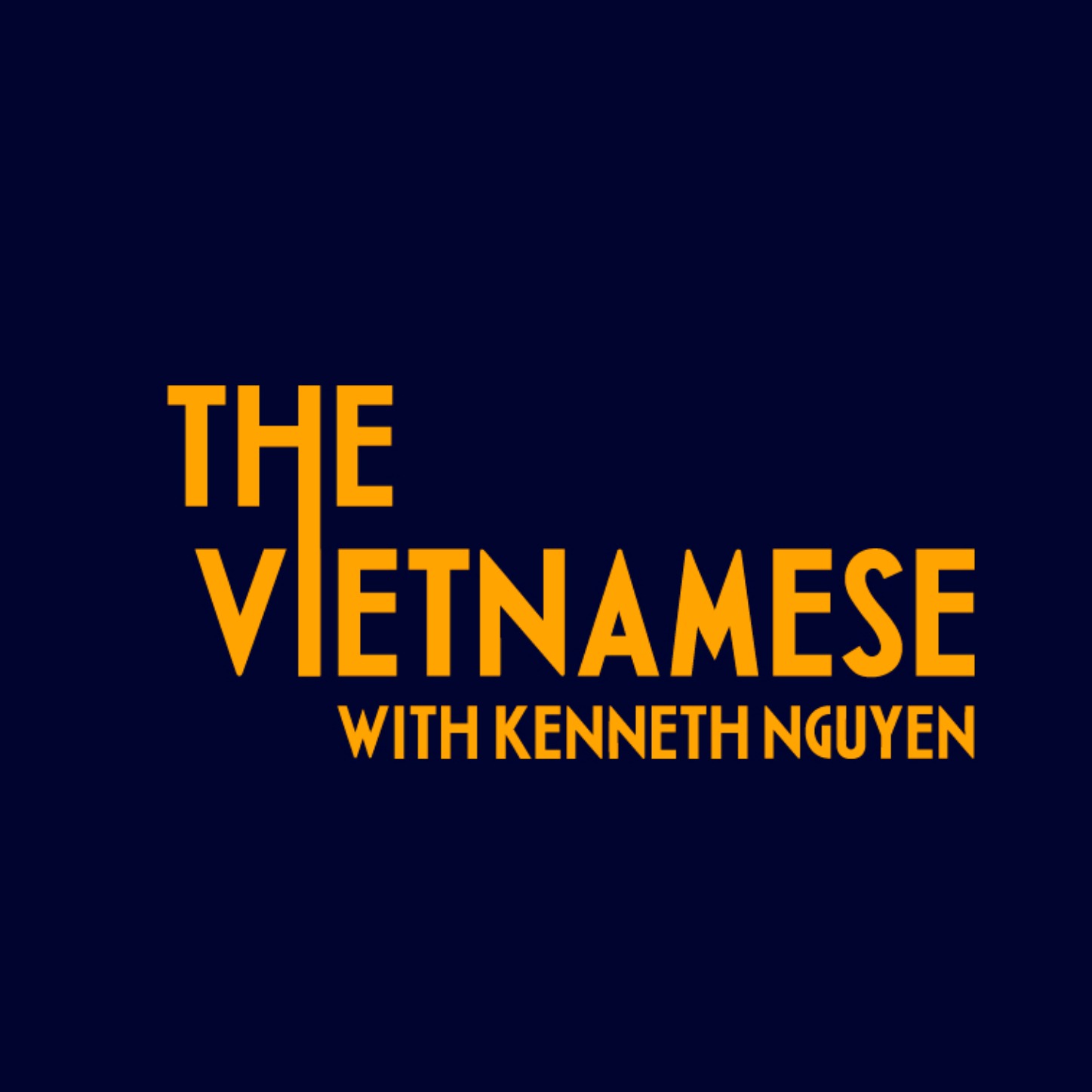
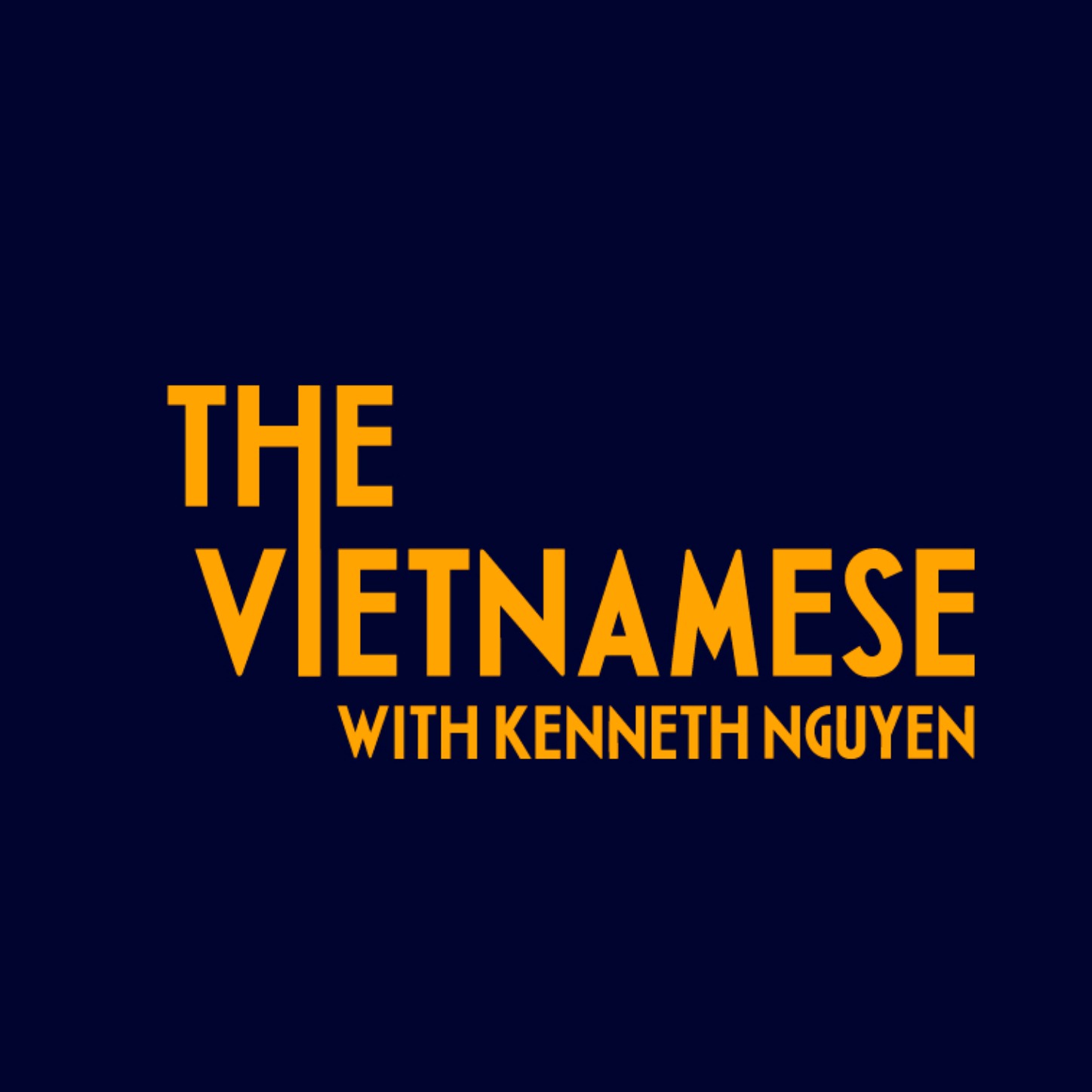
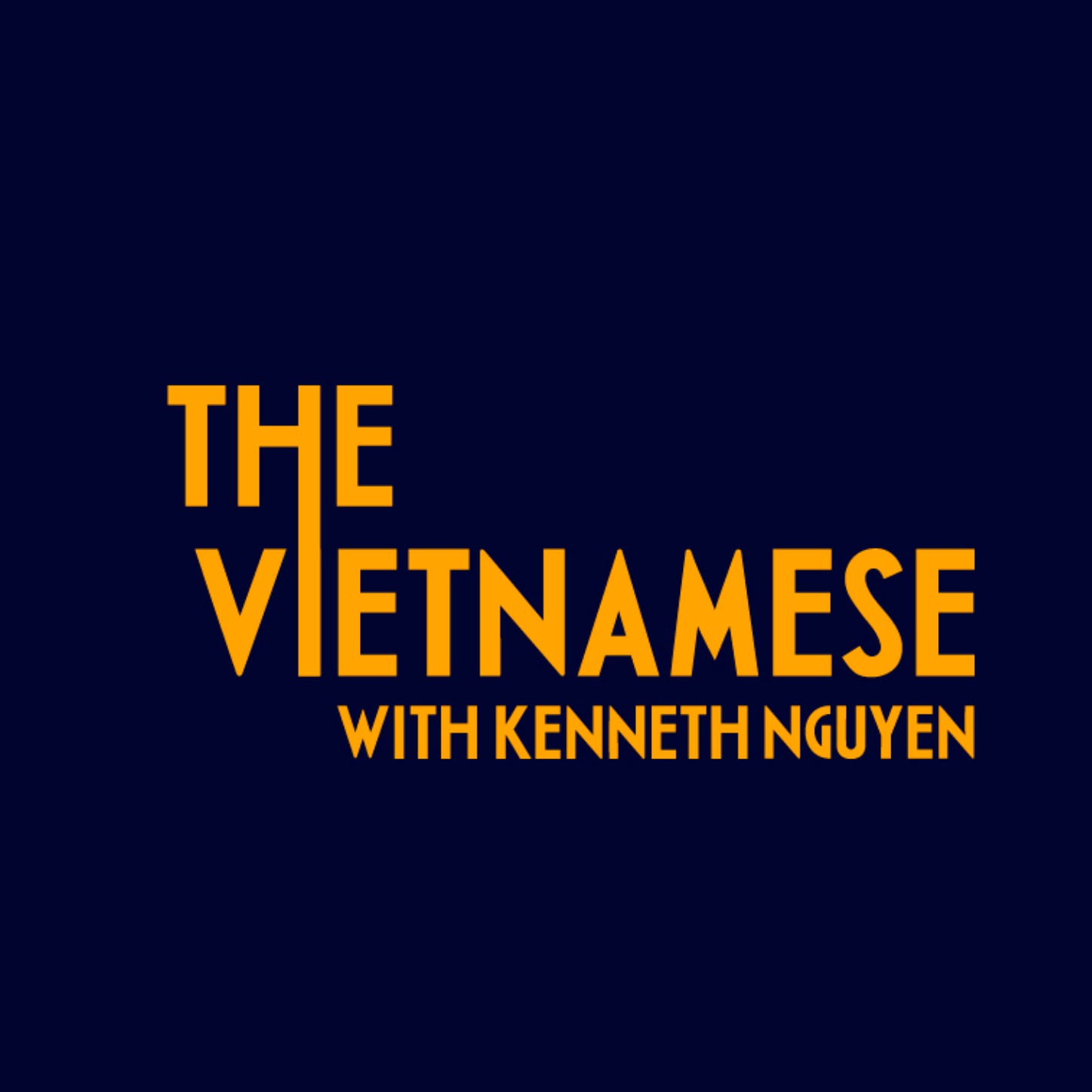
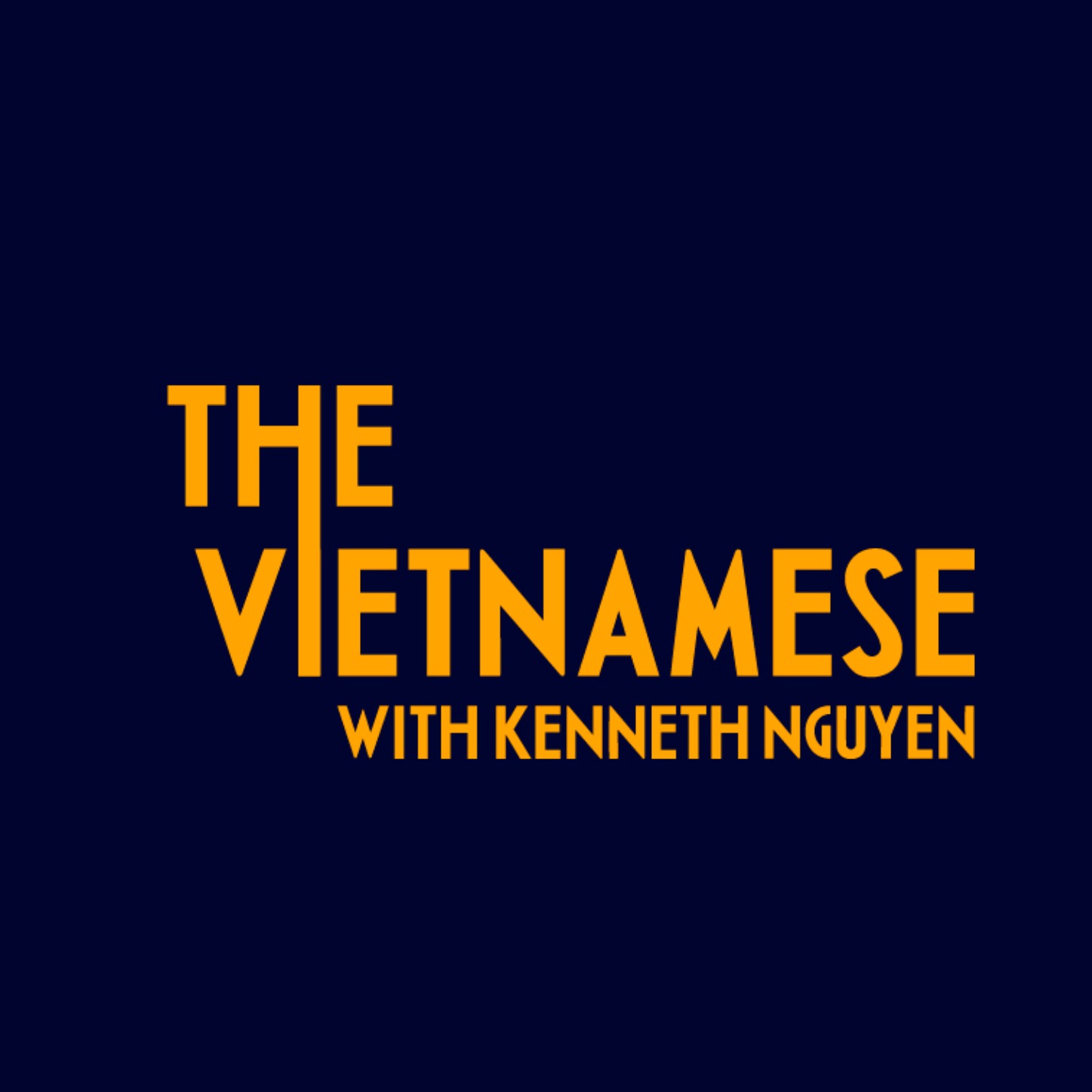
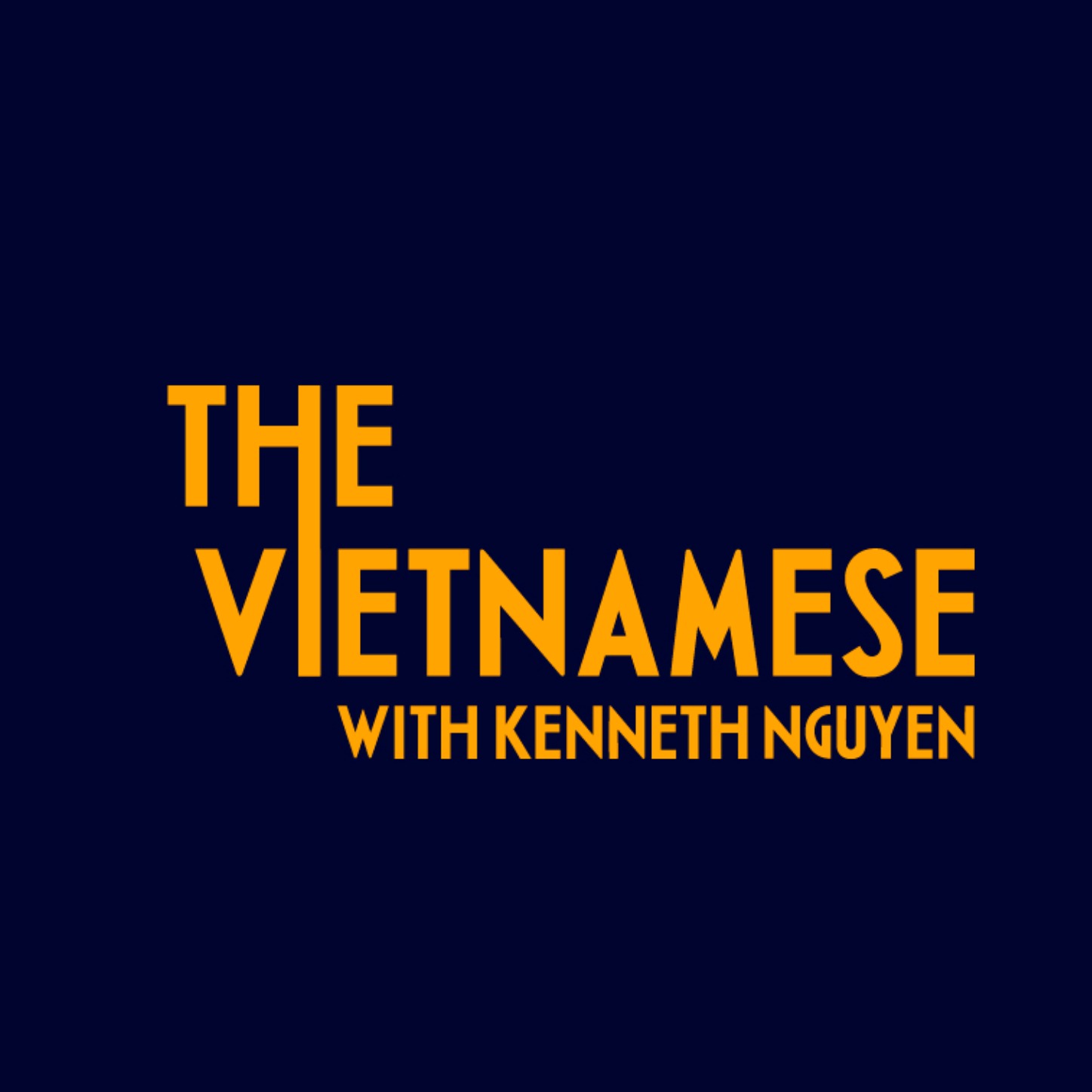
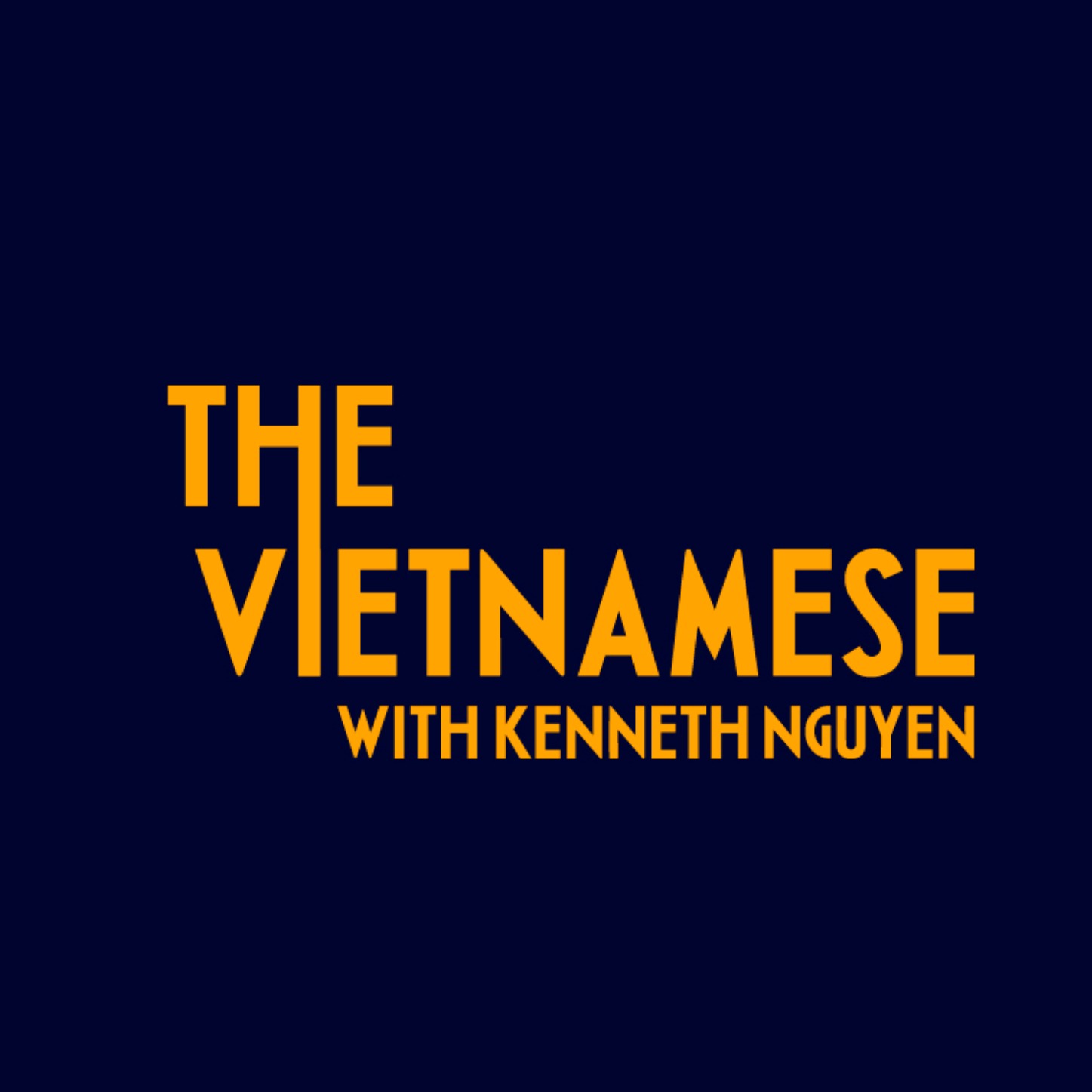
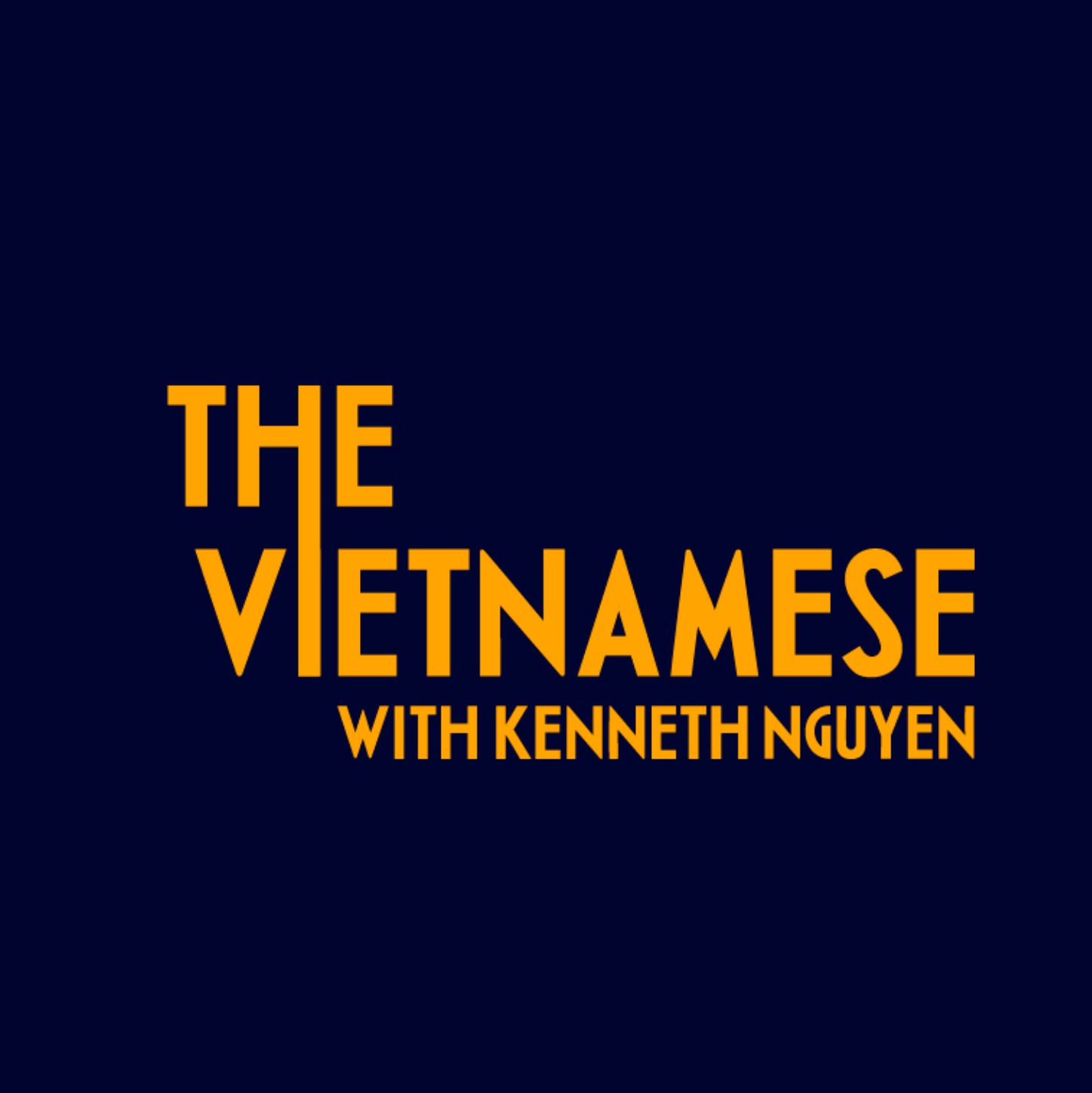
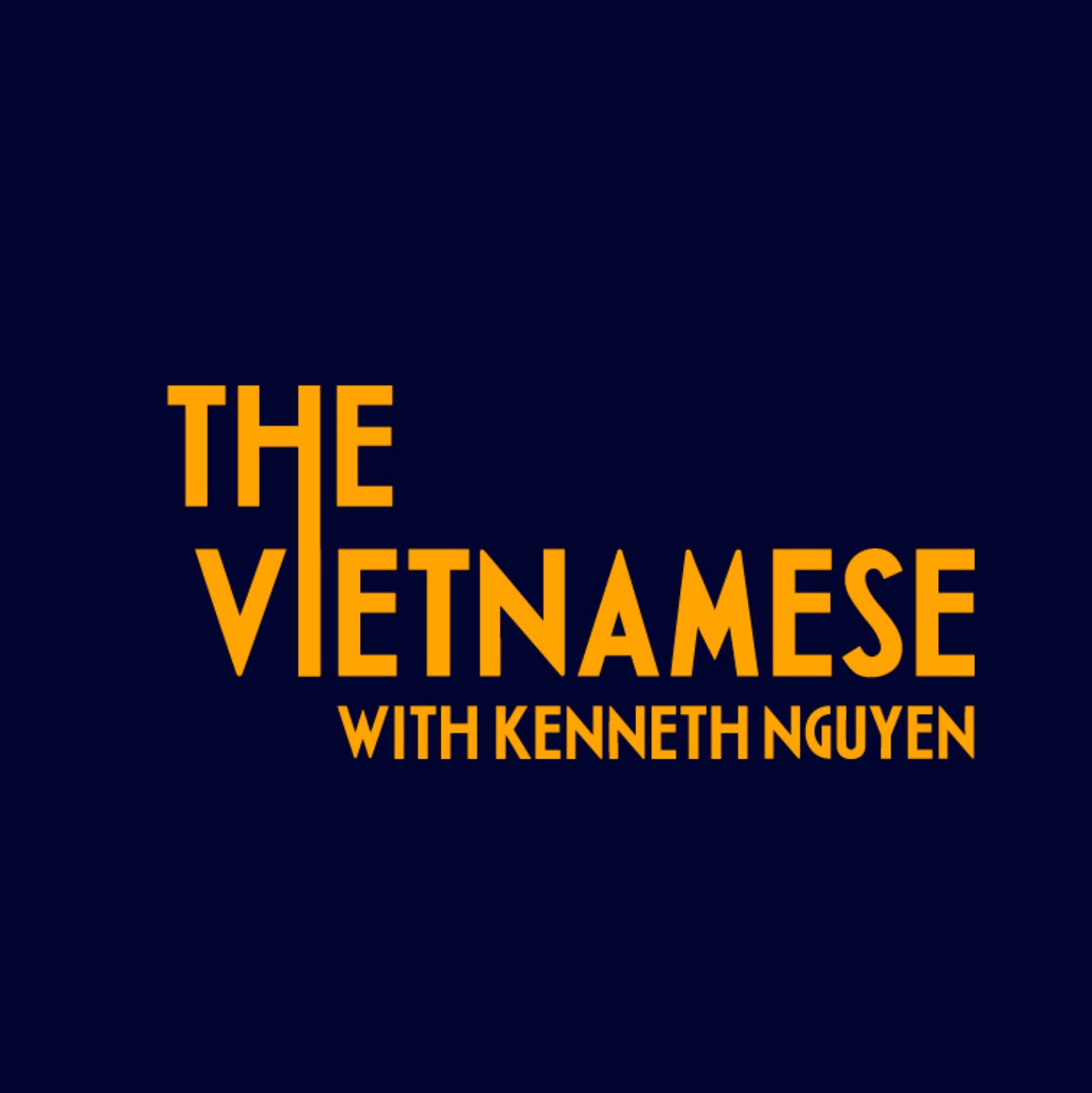
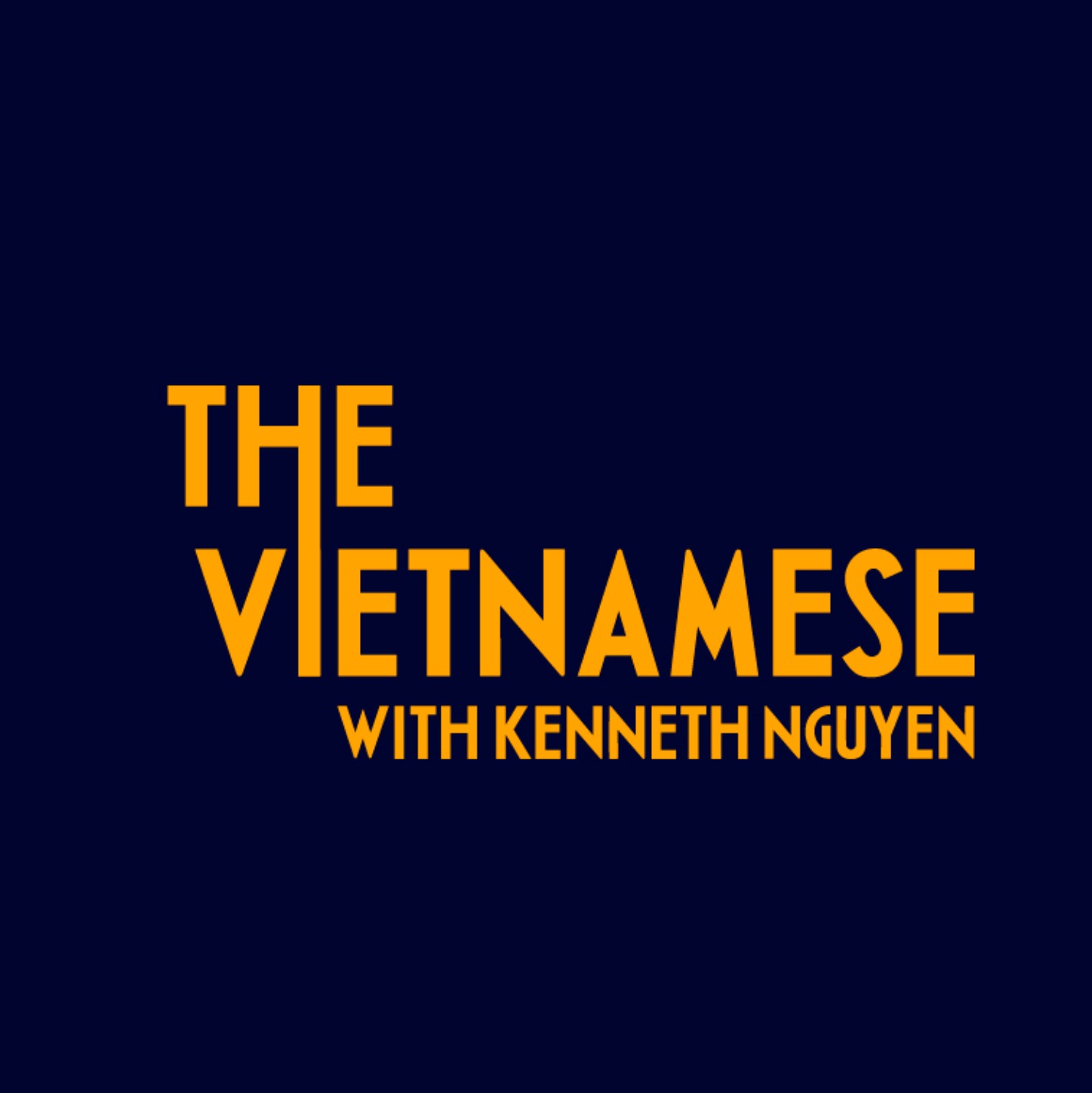
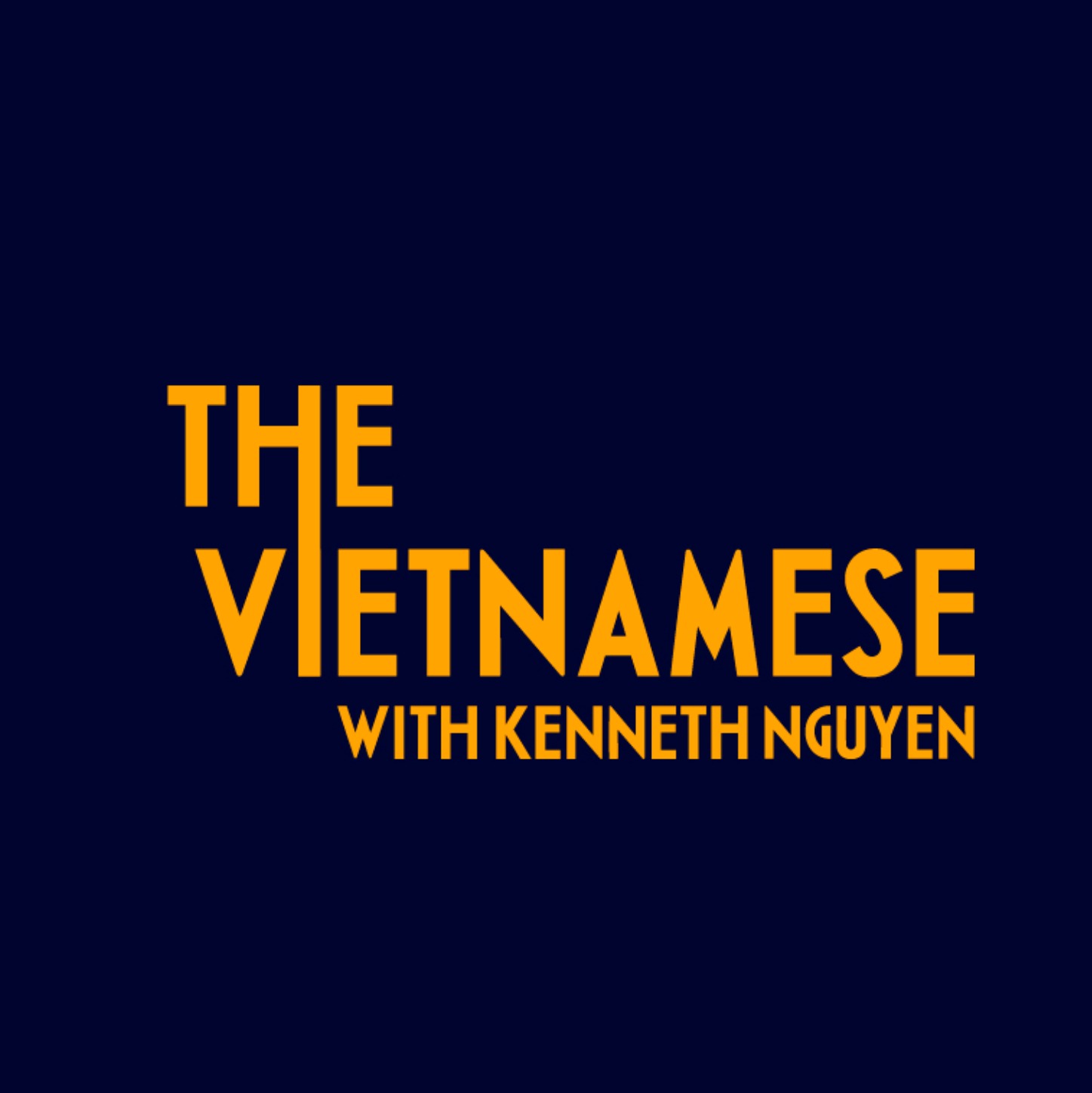
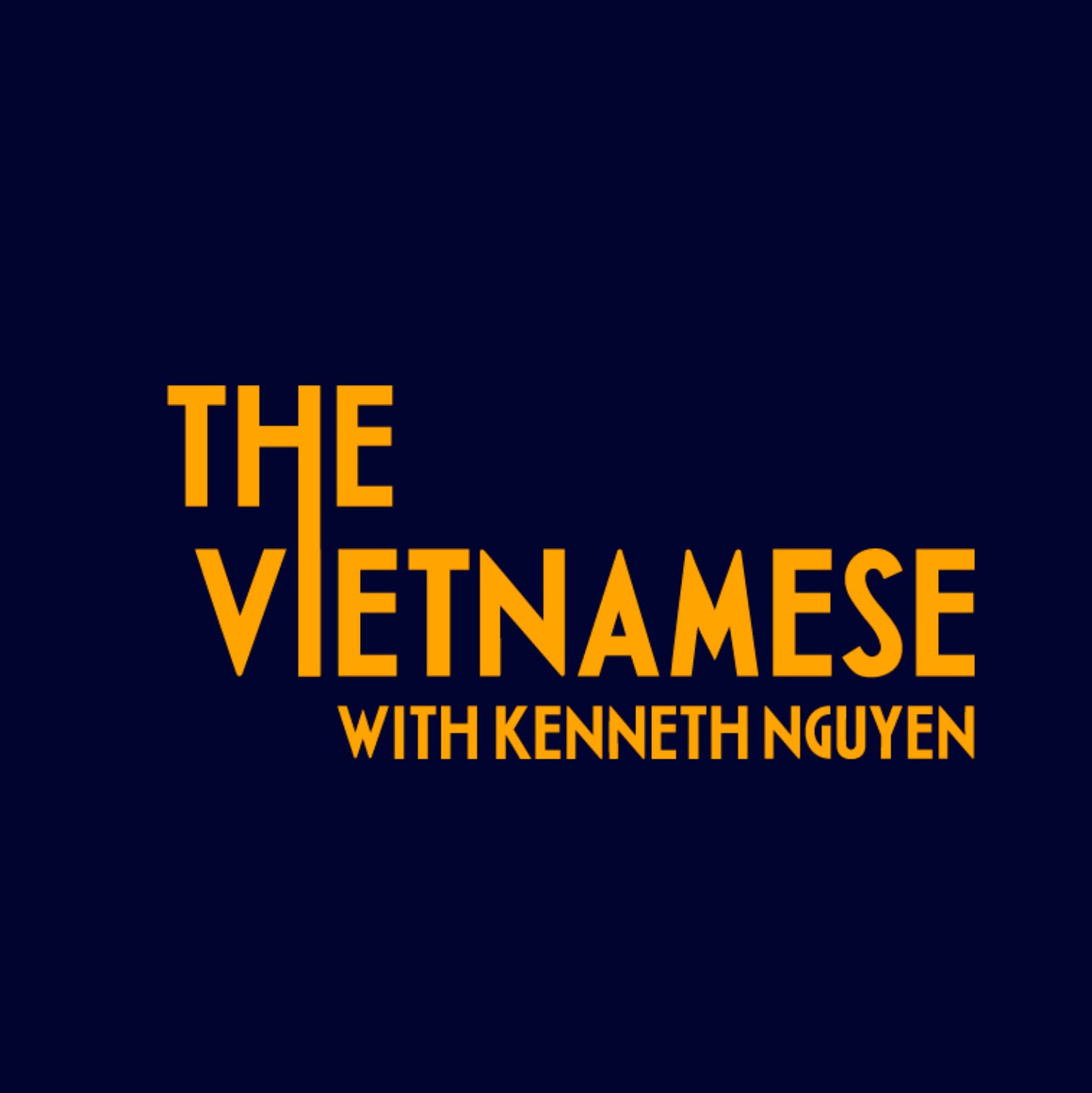
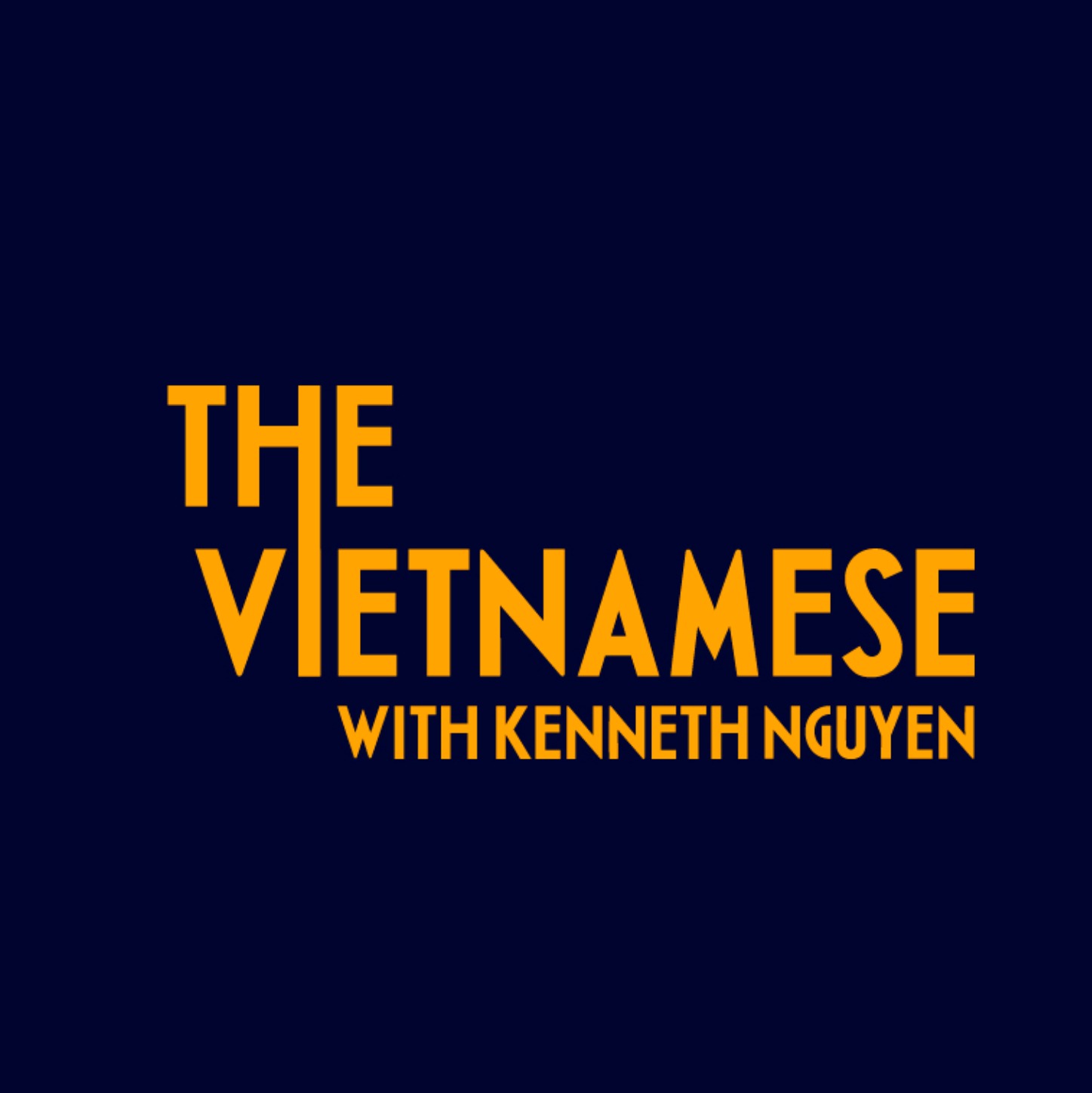
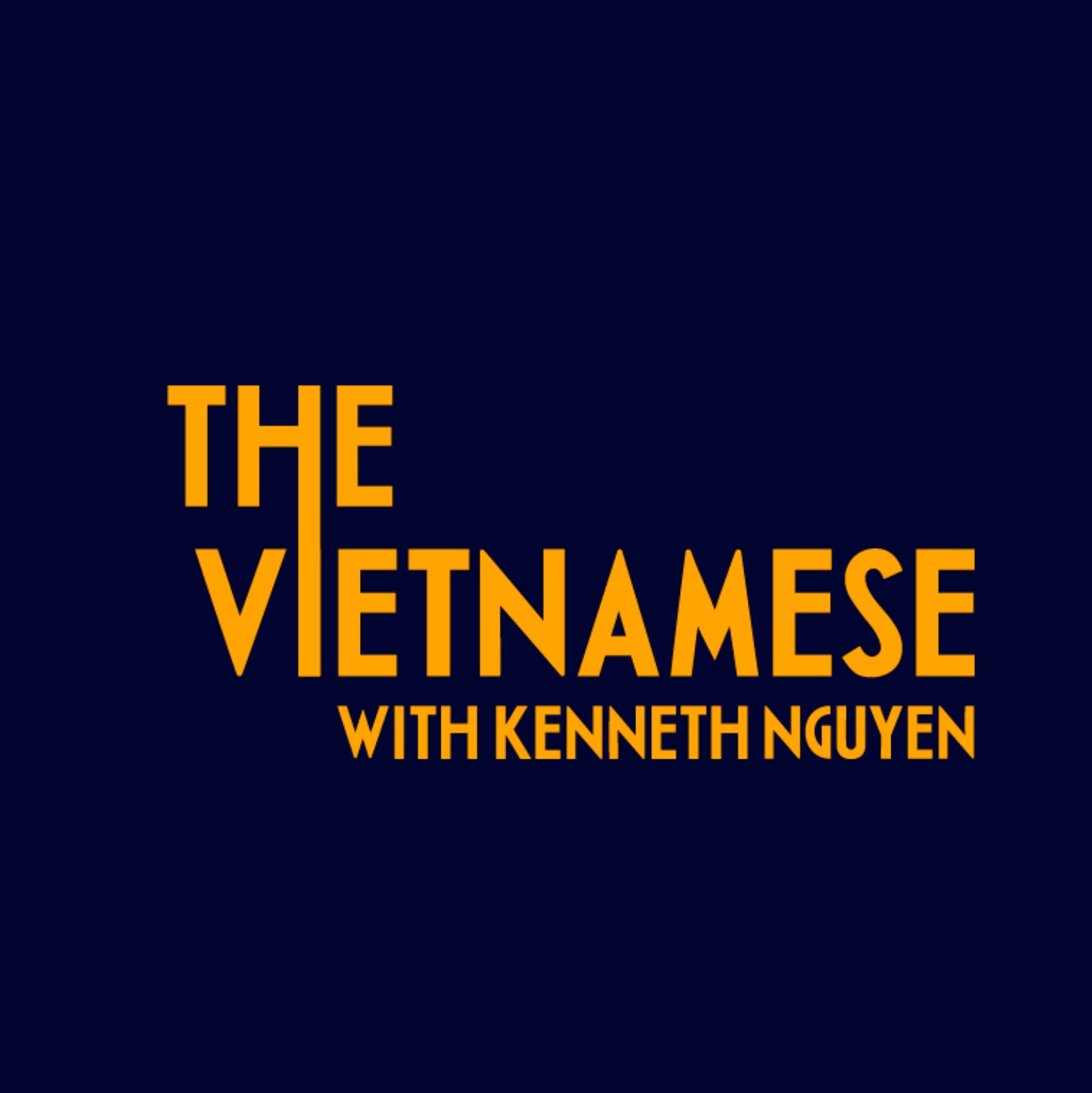

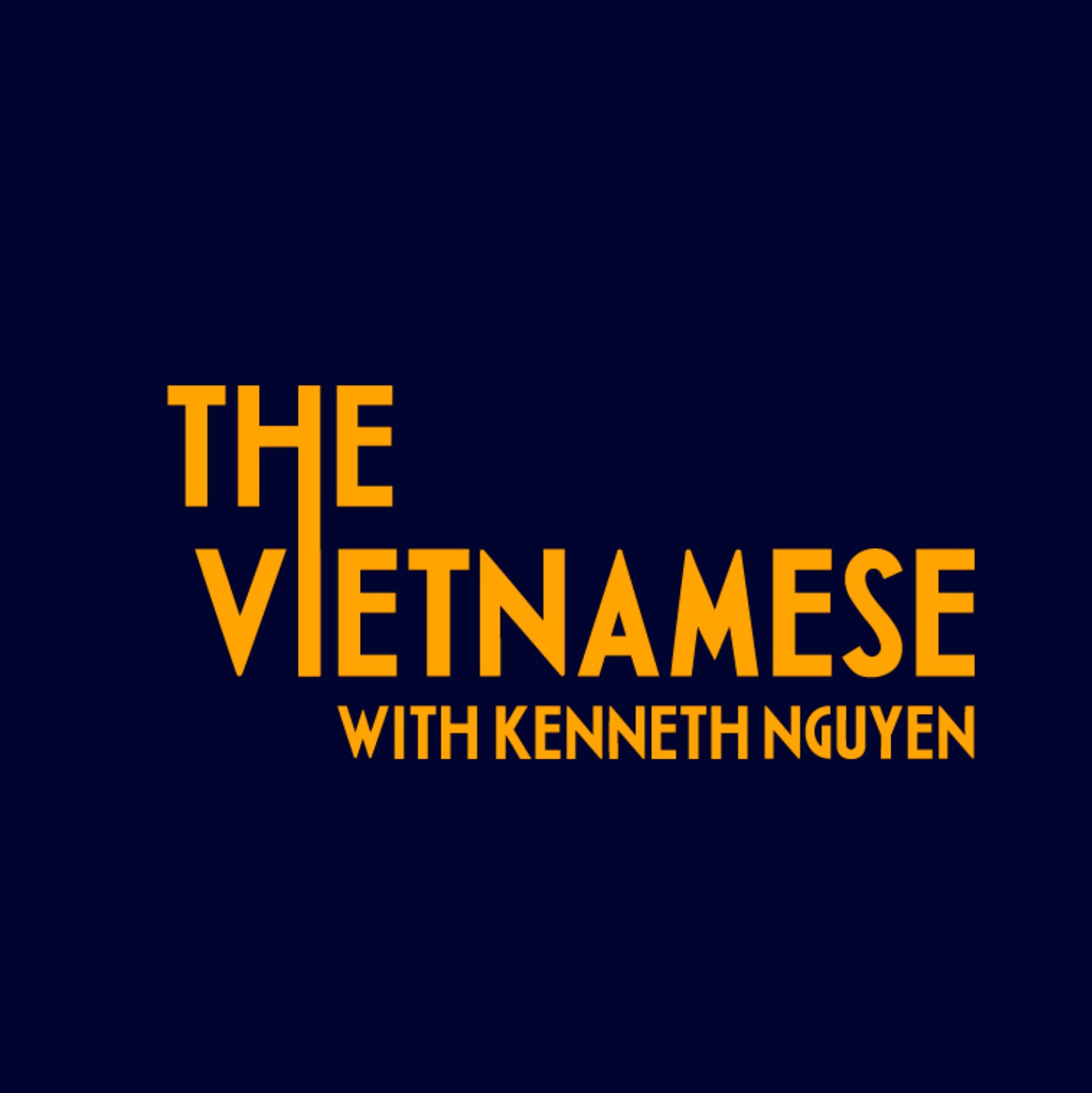



I appreciate that you guys dived into your experiences starting and maintaining your podcasting schedules. It's one of those things I struggle with as a content creator and podcast host, especially given the full level of commitment that goes with it. Nevertheless, I appreciate this podcast and the diverse array of perspectives here. As a Vietnamese-American, I struggle to find podcasts by Vietnamese folks so it's a joy to find yours. Great podcast! Would love to see more of these conversations! 😊💛